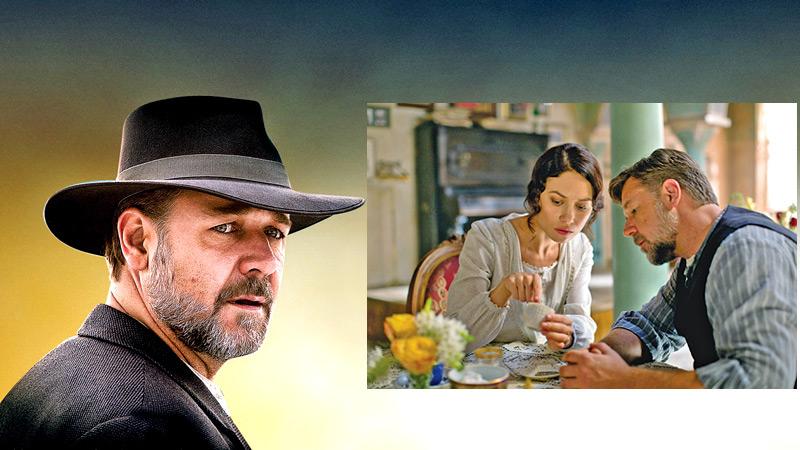
In the film Two Towers in the Lord of The Rings trilogy, the character of ‘King Theoden’ says “No parent should have to bury their child.” Wars can thus bring grief of a nature that doesn’t allow closure. But what of those parents who never even get to even bury their children who have died as casualties of war? What possibility of closure can they ever hope to have?
 The Water Diviner is a historical film set in the immediate aftermath of World War I, which deals with this issue of how far will a parent go, and what a parent will endure, to have the peace of mind that is denied due to not knowing what became of children who heeded the call to defend their nation, but had not the good fortune to return home.
The Water Diviner is a historical film set in the immediate aftermath of World War I, which deals with this issue of how far will a parent go, and what a parent will endure, to have the peace of mind that is denied due to not knowing what became of children who heeded the call to defend their nation, but had not the good fortune to return home.
Dutiful father
Directed by Academy Award winner Russell Crowe and written by Andrew Anastasios and Andrew Knight, the story is based on the book of the same title authored by Andrew Anastasios and Dr Meaghan Wilson-Anastasios. The film stars Crowe in the lead role as the dutiful father who sets out against the odds to relentlessly pursue to fulfil the promise he makes to his wife that he will find the remains of their sons who believed to be dead, and bury them in their home.
This promise being one he has made to his deceased wife who takes her own life not being able to come to terms with the crippling grief of having lost all three of her children to the war, in which Australians fought in the combined ANZAC forces.
The sons –Arthur, Edward and Henry had been deployed to fight in the trenches of the battle of Gallipoli which had been part of the defeated Ottoman Empire. Although five years had passed and the boys are presumed dead, the determined father embarks on a mission driven by his strength as a husband and father who believes the memory of his family is sacrosanct and cannot be left a speculation.

Set in rural Australia’s outback and the charming Turkish landscapes that include the Gallipoli peninsula and the small enchanting urban locales of the city of Istanbul, the film speaks of how Joshua Connor makes his life’s sole existence the need for closure about what happened to his three sons, which the authorities have written off as killed in action. Breaching lines restricting access to civilians through streetwise resourcefulness, Connor makes his way to the former battle ground which is undergoing meticulous combing for remains of the fallen soldiers under the supervision of both the Allied Forces and Turkish officers.
Special concessions
Connor’s one man mission kindles sympathies in the officers’ onsite, who must follow strict lines of operation which disallows unauthorised personnel from being onsite.
One of the questions that arise is why must they allow special concessions to this father who has come to find out what happened to his sons who fought in the war, when there are countless fathers who are left without assurance as to whether the remains of their fallen sons have been found or not? The answer is got in almost reflex –Because he is the only father who came looking.
Through the cordialness and sympathies of the people whom he comes across who admire his perseverance and the depth of his parental commitments, Connor comes to learn that his son Arthur, may have been taken prisoner and actually not killed in action in Gallipoli as previously believed. And thus sparks a hope of discovering the truth of what happened to his sons and also the distant hope of perhaps actually finding his son Arthur alive. Following a series of events that include getting embroiled in the skirmishes of a Greek invasion of Turkey that nearly gets him killed, what Connor finally discovers is a reward beyond what he may have even thought possible. The end shows that a man’s ‘home’ is finally, where familial love is found.
